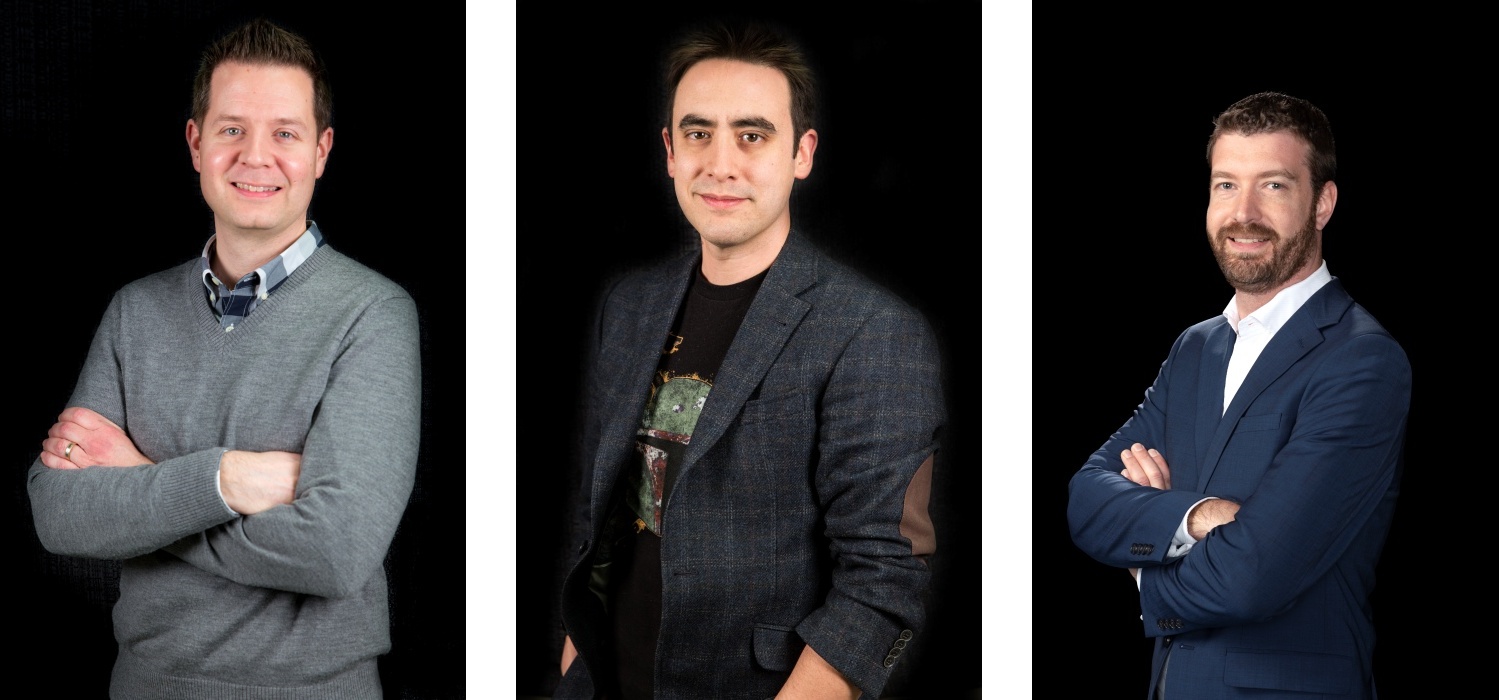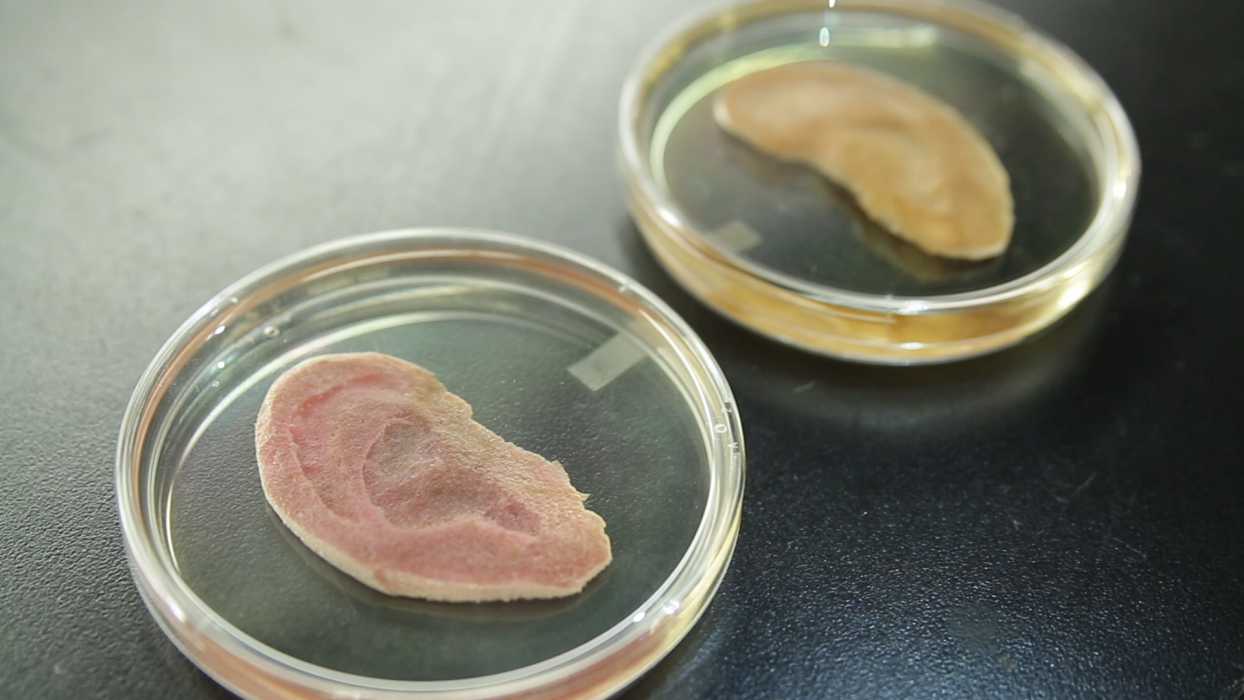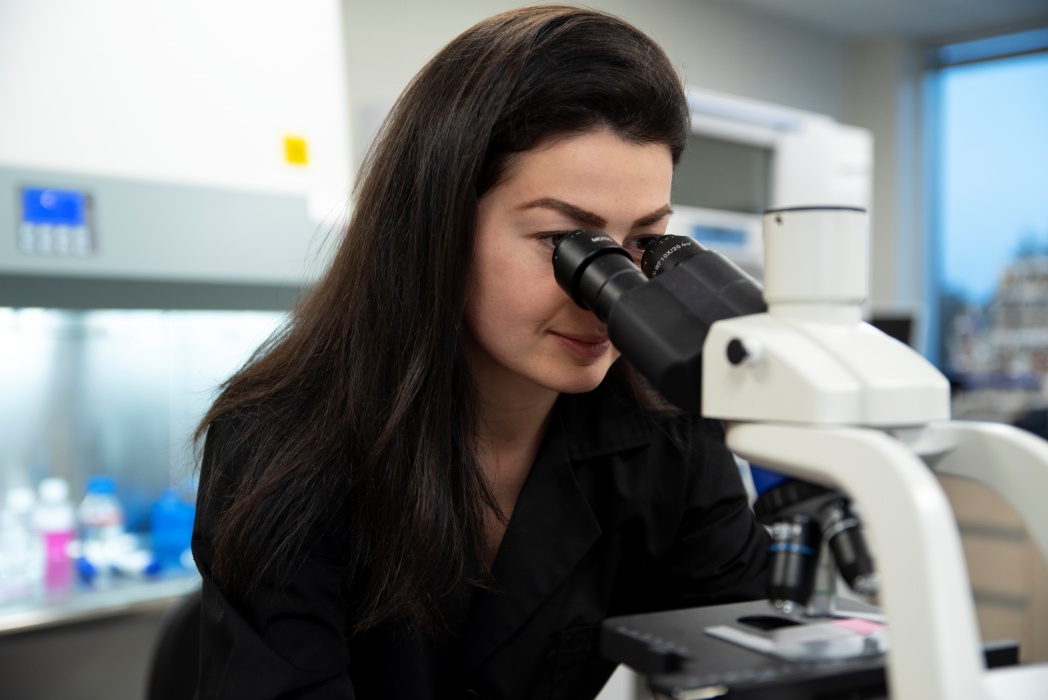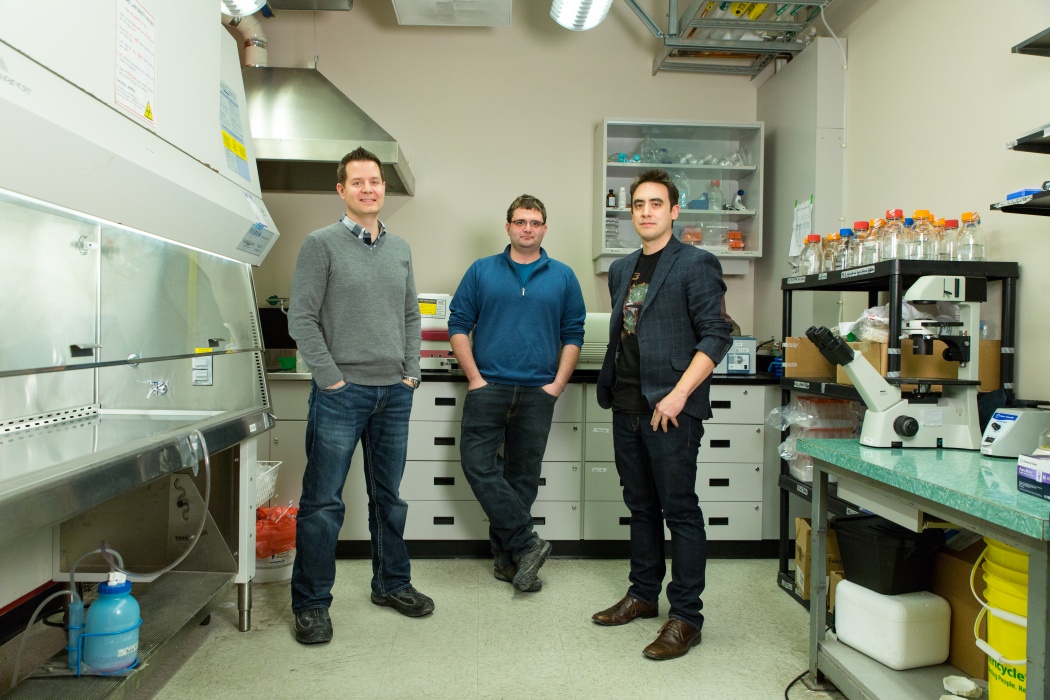Such was the case with the Ottawa biomaterials startup, Spiderwort Inc., who can trace its origins back to something as simple as an apple. While researching biomaterials at the University of Ottawa, Spiderwort co-founders Andrew E. Pelling, Charles M. Cuerrier, and Daniel Modulevsky created a human ear using material from an apple. This demonstration spawned the idea of using plant-based biomaterials to help repair the human body, and Spiderwort was born.

Spiderwort has a mission that goes far beyond the humble apple; the startup hopes to one day be able to treat everything from a broken bone to a severed spinal cord by using its plant-based biomaterial technology to provide a scaffolding for human cells.
Spiderwort’s plant-based biomaterial enables the human body to heal damaged tissues by providing structural support while also being highly inert and biocompatible. Due to its unique characteristics, Spiderwort’s biomaterial is being tested in many areas, including the repair of bones to the reconstruction of soft tissues.
Just a Quick Note:
InnovationsOfTheWorld.com has partnered with Trade License Zone (TLZ) to support global innovators looking to expand internationally. Take advantage of the UAE’s Free Zones—enjoy streamlined setup, low corporate taxes, and a strategic gateway to the Middle East and beyond.
Get Your UAE Free Zone License Fast & Easy!These biomaterials have the potential to transform the long, painful recovery following an injury into something much faster with fewer potential complications. Of course, the headlining application of the technology is its potential to treat spinal cord injuries. Spiderwort hopes to one day be able to guide the regrowth of spinal cord structures in paraplegic and quadraplegic patients, something that remains a major unsolved medical challenge.

The biomaterials industry is highly competitive and full of large incumbents but Spiderwort has an edge that could lead this small Ottawa company to shock the world. While most similar materials in the field are either made from synthetic plastics or harvested from cadavers, Spiderwort’s plant-based biomaterial is more natural and studies to date suggest it is less prone to rejection.
This “biocompatibility” is a significant hurdle as other biomaterials are sometimes toxic to the human body after long-term exposure, and rejection can significantly complicate the healing process. Spiderwort’s biomaterial has other potential applications as well,from reconstructive surgery to helping artificial meat companies shape the perfect burger.
The early results have been positive and both Cuerrier and Pelling, along with their dedicated team at Spiderwort, hope to channel their curiosity and unique approach to solving complex problems into products with the potential to transform human lives.
, 















